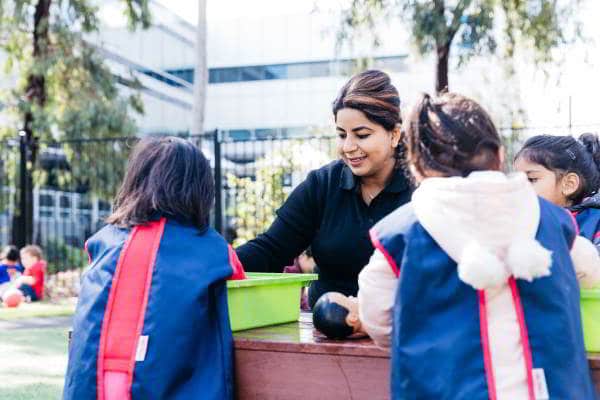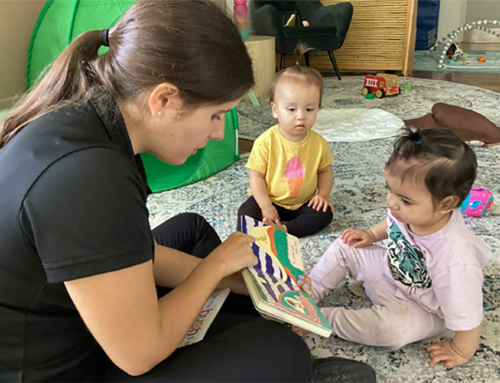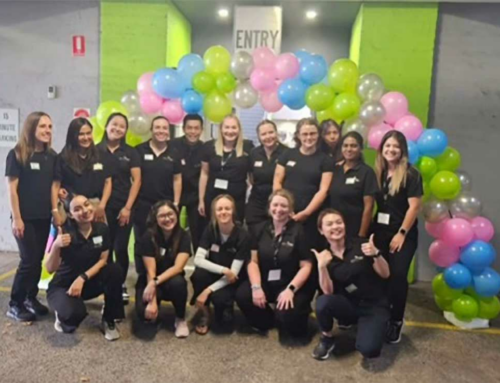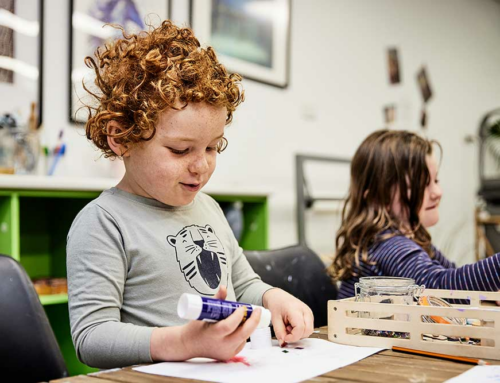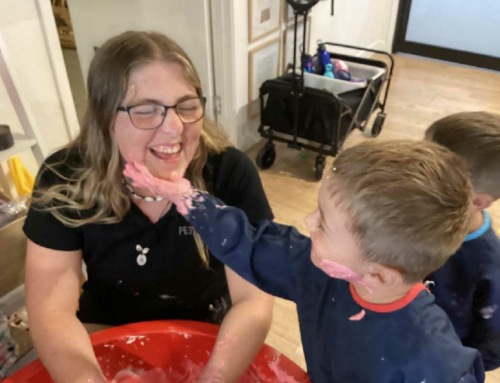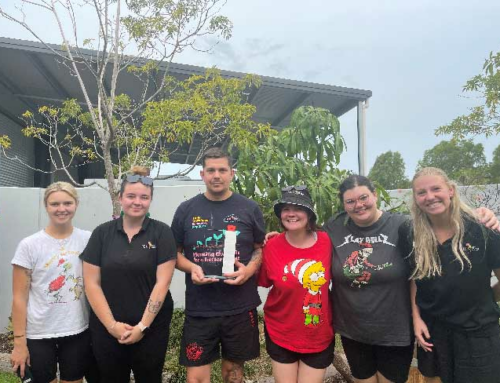One of the essential aspects of the National Quality Framework (NQF) is that it seeks to establish a system of integrity and quality. This is evident in Quality Area 7: Governance and Leadership where effective leaders establish values for all employees including child care educators.
Yet integrity permeates throughout the NQS. It also applies to the way you treat children, families and coworkers and how you handle everyday decisions. As an early childhood educator, integrity matters in the way you make ethical decisions and resolve disputes.
In this article, we’re going to discuss the different ways you can demonstrate and develop integrity as a child care educator. To keep us on the straight and narrow, we’ve enlisted the help of Meagan Ryan, centre director at Murwillumbah to explain how integrity moulds:
- Friendliness
- Basic manners
- Respect
- Honesty
- Transparency
- Positive communication
- Professionalism
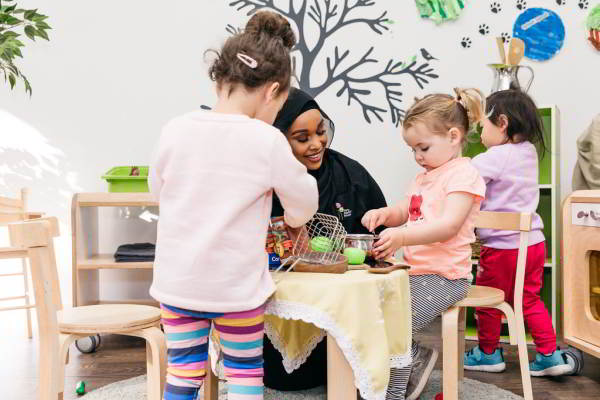
Early childhood educators as role models
At Petit Early Learning Journey our centres encourage staff to promote a high level of professionalism. We have high expectations that our early childhood educators professionally conduct themselves at all times.
It’s important to recognise that child care employees whether they are educators, cooks or administration workers, all have a responsibility to act and be seen acting with integrity. When working with children, we must exhibit the behaviour we expect them to display.
Children mimic the actions and attitudes of adults. Imitation is a milestone for many toddlers, but while some children don’t learn from repeating behaviours, all children observe and process information.
Young children are impressionable, and that’s why it’s vital for early childhood educators to hold themselves accountable for their actions and choices. Even if you feel upset or angry at work, it’s critical that you don’t process those negative emotions, so they affect those around you.
Children and families always come first. Murwillumbah’s Centre Director, Meagan explains the importance of putting them first as it promotes a welcoming and diverse centre that ensures families and children feel valued and supported.
“We respect families and firmly believe they know their children better than anyone and we value working as a team to provide the best support and a positive outcome for the children,” says Meagan.
Murwillumbah’s Petit centre puts families and children first by:
- Organising cultural experiences that connect with our families
- Arranging local excursions for children to the library, farmers markets and opal aged care facility
- Welcoming families to the centre for Easter morning teas, Mother’s Day and Father’s Day events
- Organising parent information nights to share in learning experiences with the children.
- Establishing an open-door policy to welcome families any time
- Liaising with external services such as:
- Gowrie
- The Family Centre
- Inclusion Support
- Additional Childcare subsidy
to help families with additional needs to access the services and enable children to reach their full potential.

Why is integrity critical for early childhood education?
Put simply, integrity builds trust. An educator with integrity shows they are trustworthy, honest and fair. Integrity is a strong leadership quality, and generally, a person with integrity acts on their convictions and stands up for their values while still being open to new ideas.
If an early childhood educator doesn’t stand by what they say and does the opposite, this can send confusing messages to the children. Integrity is essential for clear communications and for establishing boundaries and fairness.
So, how does one demonstrate integrity when working within a centre? Leading by example is the most important way for you to display integrity. Instead of “Do as I say, not as I do”, be honest, avoid gossip and treat others with respect and kindness.
7 Qualities of integrity for early childhood educators
At Petit, we’ve identified seven qualities where an educator demonstrates integrity. Meagan’s stepped in to provide these thoughtful examples from our Murwullimbah centre.
- Friendliness
At Petit Murwullimbah, we acknowledge families when entering and exiting the centre by making them feel welcome and by having fun. We use warm and friendly greetings, make ourselves available for families and meet regularly with parents. We also maintain daily communications via the “Storypark” program, phone calls and in person. - Basic manners
Educators continually role model positive interactions with other educators, children and families. We get down to the children’s level and engage in positive learning experiences. Facilitate children’s use of manners by modelling and demonstrating the use of manners. - Respect
Educators model respectful interactions and engage the children in experiences to extend on their learning and understanding of respectful interactions and relationships. A Magic Moments board has been created to support and encourage positive interactions between children in the preschool room. The children are given a magic moment to place on the board when educators or children notice a magic moment throughout the day. Magic moments are moments of kindness, fairness, turn taking, helping and being a good friend. Books are read with children, followed on with group discussions about emotions/ emotional regulation and respecting each other. - Honesty
We have open communication with staff, and with families, open and honest discussions are had with families with regards to their child’s strengths and any concerns observed. To promote a collaborative relationship and positive outcomes for children. - Transparency
There is a consistent theme of open communication across all the areas between educators, other staff, families, children and our wider local community. We maintain accurate and timely records for all our children and in the management of our service. - Positive communication
We put the child first and any behaviour/ developmental concerns second and meet parents where they are at and support them to best support their child as any concerns arise. Our positive communication promotes teamwork amongst staff, families and children. - Professionalism
Staff show dedication and commitment to their role by attending regular staff meetings and continuing professional development.
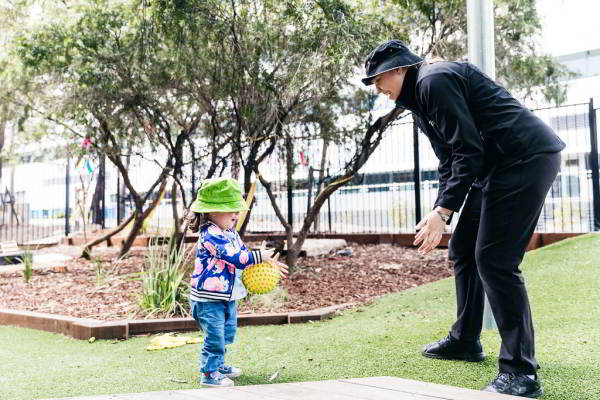
Experience a Positive Difference with Petit Early Learning Journey
At Petit ELJ we value the integrity of our team members. Positive communication is essential for early childhood educators in a fun, energetic and smooth running centre. We work together with integrity to ensure our families have positive experiences every single day.
Do you live a life full of integrity? If you can tick all seven of our integrity areas and can model your behaviour and language so our children can learn integrity from you, then what are you waiting for? Apply to a centre near you.
